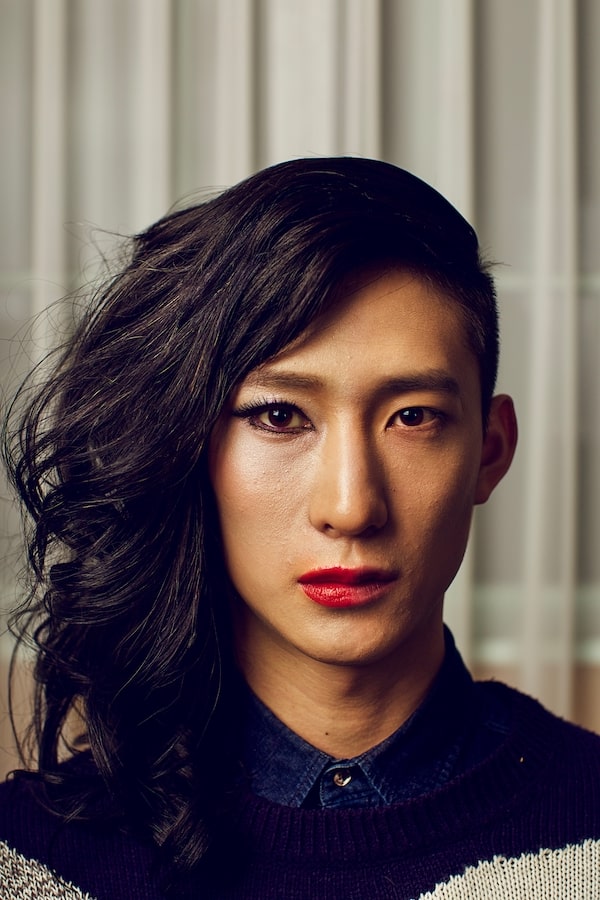Are You Struggling to Find Acceptance As An LGBTQIA+ Individual?
As a lesbian, gay, bisexual, transgender, queer/questioning, intersex, asexual person, or other, are you tired of being judged? Maybe you’ve been subjected to ignorant and hurtful opinions in passing or when coming out to friends, family, colleagues, or others.

Have you experienced judgement, discrimination, rejection, or outright aggression? Whether you’re single, partnered, open, poly, transitioning, trying to adopt a child, or just discovering something new about yourself, have you felt unwelcome, inferior, broken, or even unsafe?
Do you criticize yourself for having certain thoughts and feelings and wish you could understand them better or be more self-accepting? Are you also carrying the weight of your own internal judgements and self-doubt?
Life as a sexual/gender minority can be painful and isolating, leaving you feeling uncertain, afraid, depressed, angry, or hopeless. However, you don’t have to go through these experiences alone.
Why Is Coming Out So Difficult For So Many People?
The sad truth is that many people tend to fear what they don’t understand. This fear has fed a culture of phobia, intolerance, discrimination, and hate that make life difficult for minorities/marginalized people, including LGBTQIA+ individuals.
Whether they come out or not, members of the LGBTQIA community are often subjected to the harsh judgements and discrimination of acquaintances, colleagues, institutions, and even their friends and family members. Many have cruelly been told that they are sick or sinful, or have been subjected to harmful practices such as conversion therapy by the very people who were supposed to help them.

All of this has had devastating consequences. Many LGBTQIA individuals, lacking support, turn to alcohol or other drugs. Many have even taken their own lives; according to Psychology Today, members of sexual/gender minorities are two to seven times more likely to commit suicide.
Many LGBTQIA individuals feel alone because they lack companionship and validation and are out of touch with their tribe. Fortunately, there are many resources that can help sexual minorities overcome fear and depression, including advocacy groups, support groups, and LGBT-friendly counseling.
Affirmation Counseling With LGBT-Friendly Therapist, Russell Wilkie, MFT
In my experience, a great deal of misery has been caused by my clients’ futile efforts to adapt to situations that aren’t working for them. Adapting to pressures may not be in your best interest. I’ve also found that many people have adopted a victim mentality that leaves them feeling powerless. To counter this tendency, I will teach you recognize potential opportunities for positive change so that you can act on them.
Many gay, lesbian, and other sexual/gender minorities are plagued by negative thinking that erodes their self-worth and prevents them from taking actions to improve their situations. If I detect such negative thought patterns during our sessions, I will teach you to re-frame your experiences more objectively.
Whether you’ve adopted negative thoughts as a result of your upbringing, societal pressures, or a traumatic experience, LGBT counseling can help you move past them. For example, if your first attempt to flirt with someone of your orientation was met with a negative reaction, you may have internalized thoughts such as “I’m a bad communicator,” “I wish I wasn’t gay,” or even “I’m a bad person.” A type of therapy I use that’s called Eye Movement Desensitization and Reprocessing (EMDR) allows you to recognize such thoughts as the falsehoods that they truly are. Learn more about the EMDR technique by reading about EMDR Therapy.
In addition to addressing any thought patterns that aren’t serving you, we’ll explore whether your psychological difficulties may have biological roots. If it seems like you may have a chemical imbalance that’s causing anxiety or depression, etc. (and you’re open to medication) I may recommend a doctor that we can work with as we search to find the right medication for your unique biology and needs. With your consent, I will collaborate with your medication prescriber to closely monitor your progress and make adjustments as needed.
 Like many people in the LGBTQIA community, you may also be struggling with substance abuse. If so, we will discuss the many different methods and programs that are available and select a treatment plan that resonates with you – 12-step programs are not for everyone, and there are other options. . .
Like many people in the LGBTQIA community, you may also be struggling with substance abuse. If so, we will discuss the many different methods and programs that are available and select a treatment plan that resonates with you – 12-step programs are not for everyone, and there are other options. . .
Only you can determine what you want out of life. Oftentimes, the only way to find out if something will work for you is by trying it. To that end, I’ll encourage you to try new things and help you to pay attention to your emotions so you can better assess where you are and where you’d like to be, both situationally and emotionally. We’ll take the same experimental, iterative approach in our sessions. If you tell me that a certain element of therapy isn’t working for you, we won’t repeat it.
My goal will be to get you enough relief that you feel well enough to end therapy. You’re welcome to continue counseling, but my goal is that, with time, your depression, anxiety, and other symptoms or concerns will lessen to such a degree that therapy is no longer needed. Once you start feeling confident and happy enough to pursue your goals and dreams, you’ll know that you’re well enough to continue moving through life on your own. I’m always happy to work myself out of a job.
As you consider LGBT counseling, you may be thinking. . .
Therapy is really expensive. I’m not sure if it’s worth it.
It’s true that LGBTQ counseling represents a significant financial investment, but the emotional cost of not coming to therapy is often greater. The renowned codependency treatment expert, trauma specialist, and author Pia Mellody has said that if you don’t embrace your demons, they will come back to bite you, and I agree. Counseling with a LGBT friendly therapist can help you find and fix any psychological glitches and put you on a path to a healthier, happier life. Attending counseling can have financial benefits, as well, especially for couples. Divorce, for example, often turns out to be much more expensive than therapy.
I’ve tried LGBT counseling before and it didn’t work. Will this be any different?
Every therapist has a different style, and you will resonate with some more than others. So, maybe we’ll be a good match, and maybe we won’t. Therapists are like shoes – you have to try some on before you find the one that fits. While I can’t promise that I’ll be the right therapist for you, I can promise that I will NEVER judge you for your sexual orientation or gender or ask you to change who you are. My goal is for you to find your authentic-self. It’s also worth noting that the level of dedication and honesty you bring to our sessions will determine how much you get out of them.
 Is therapy confidential? What if someone finds out?
Is therapy confidential? What if someone finds out?
As a therapist, I am ethically and legally bound to maintain your confidentiality. While privacy is important to every one of my clients, regardless of why they are seeing me, I have found it to be particularly important to LGBTQIA individuals. I hold privacy at the highest level of importance. My office was custom-built for confidentiality, including six-inch walls for extra sound insulation, ceilings with heavy insulation batts, and separate entrance and exit doors.
Since the corona virus, I have changed my practice to be exclusively online therapy, or tele-health, which makes confidentiality less of an issue, as it is all done virtually. I have also done everything in my power to make sure that online counseling is encrypted and safe.
Find Empowerment, Confidence, And Relief With LGBT Affirming Therapy
Counseling can help you accept and, in time, come to love everything about yourself. You can’t undo years of pain, doubt, and unproductive thinking overnight, but the sooner we start, the sooner you can start feeling better. As a gender identity therapist with more than 30 years’ experience, I’ve seen first-hand the positive impact that professional counseling can have for many LGBTQIA individuals. Feel free to visit my contact page to set up an initial appointment and determine if we are a good working team.
Click to download a copy of Russell Wilkie’s LGBTQIA+ Friendly Therapy page.

